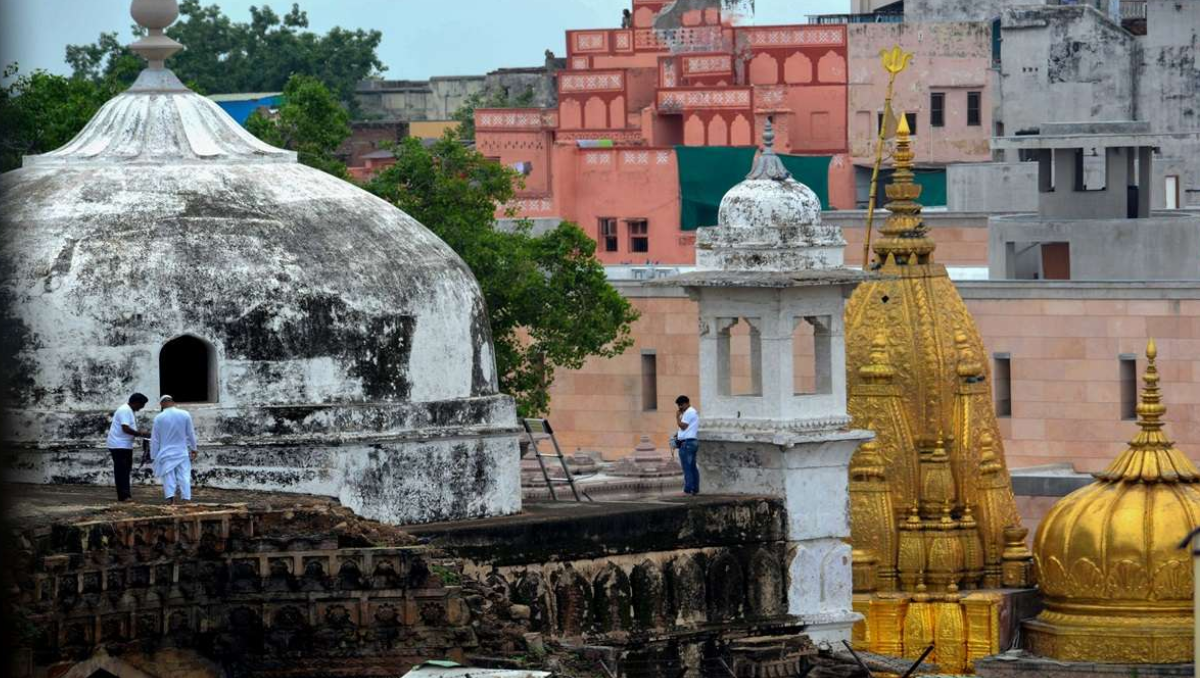Gyanvapi case: To ascertain whether the 17th-century mosque was built over an earlier temple, the ASI is conducting a scientific assessment of the Gyanvapi mosque complex, which is adjacent to the Kashi Vishwanath Temple.
Although ASI informed the court that it had “completed” the survey of the Gyanvapi mosque complex, it might take some more time to put together the report and include information on the specific equipment that was utilized.
Gyanvapi case: Today, November 17, the district court is expected to get the findings from the Archaeological examination of India (ASI), which carried out a scientific examination of the controversial Gyanvapi mosque grounds in Varanasi.
The litigants’ attorneys claim that ASI has finished the poll, which lasted for more than a month. On Friday, the report can be delivered under a sealed cover to the district court. The ASI requested an extension, claiming that the work was incomplete, despite the court’s initial directive for them to provide the report by September.
After that, the court gave the ASI until November 17 to turn in the report. Ground penetrating radar and other scientific tools were employed by the ASI during the survey, which commenced on August 4, to determine what was beneath the Gyanvapi premises.
The ASI team also examined the building’s outside and interior walls, the cellar, and other areas outside of the “wuzukhana,” which is where Muslims wash their hands before praying.
After the Muslim litigants’ petition to postpone the Varanasi court’s decision for an ASI assessment was denied by the Allahabad High Court, the survey of the Gyanvapi mosque premises got underway. The Kashi Vishwanath temple grounds have been a source of dispute between the two communities for many years, but with the high court’s favorable ruling in the Ram Janmabhoomi case, there has been a resurgence of calls for the saffron outfits to reclaim the land.
The Hindu petitioners claimed that in the seventeenth century, the Mughal emperor Aurangzeb had destroyed a portion of the temple. The Muslim side argued that the mosque had existed before Aurangzeb’s reign and that land documents had also made reference to it.

(Image Source : India TV)
Learn more about the Gyanvapi case:
In order to ascertain whether the Gyanvapi mosque complex, which is situated close to the Kashi Vishwanath Temple, was built over an earlier temple, the ASI is conducting a thorough investigation of the area.
The ASI study was launched in July following the Allahabad High Court’s affirmation of a Varanasi district court ruling, stating that the move is necessary for the sake of justice and will benefit both the sides.
The mosque committee had also petitioned the Supreme Court in opposition to the high court’s decision. On August 4, the Supreme Court declined to stay the High Court’s ruling regarding the ASI survey. However, the highest court instructed the ASI to refrain from any invasive actions during the survey in its order.
The deadline for the ASI to finish the survey of the mosque complex was November 6 (Monday). District Government Counsel Mishra, meantime, stated that in September, a plea was filed in the court of Civil Judge (Senior Division) Nitesh Kumar Sinha about the transfer of basement keys at the Gyanvapi mosque complex to the district magistrate of Varanasi.
The Varanasi court extends the deadline for ASI’s report submission.
The Varanasi court granted the Archaeological examination of India’s motion on Thursday, allowing the ASI more time to finish and submit its report on the scientific examination of the Gyanvapi mosque complex in Varanasi. According to Central government counsel Amit Srivastava, District Judge A K Vishvesh issued an order extending the deadline for submitting the survey report until November 17.
The court was informed that the ASI had finished the survey, but Srivastava stated that it might take a little longer to compile the report and include information on the equipment used in the survey.
The mosque committee had also petitioned the Supreme Court in opposition to the high court’s decision. On August 4, the Supreme Court declined to stay the High Court’s ruling regarding the ASI survey.
However, the highest court instructed the ASI to refrain from any invasive actions during the survey in its order.



